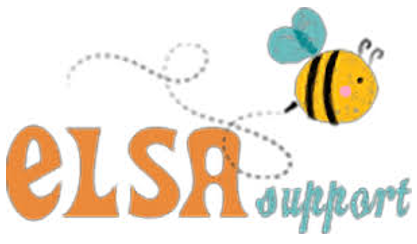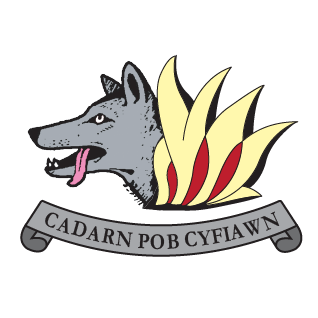At Cyfarthfa High School, we believe that a child’s wellbeing is just as important as their academic success. That’s why we work closely with pupils, parents, staff, and outside support services to care for every aspect of a child’s development—physical, emotional, social, and academic.

Our goal is to create a positive, supportive school environment where every pupil feels known, valued, and encouraged to grow in confidence and resilience. We want all pupils to thrive, not just in school, but in life beyond the classroom.
We are guided by the belief that a strong education goes hand-in-hand with good wellbeing—for pupils, staff, and the wider school community.
Who provides support?
All students are supported by a number of significant adults. All students are members of a year group these are led by a Head of Year.
Year 7 – Mrs Smith
Year 8 – Mr Williams
Year 9 – Mrs Crane
Year 10 – Mr Morgan
Year 11 – Mrs Morgan
A Head of Year looks after the pastoral care, behaviour, and overall wellbeing of students. They act as a point of contact between school and home and play an important role in helping your child succeed both academically and emotionally.
What They Do to Support Your Child:
- Pastoral Care: They check in on your child’s wellbeing, offering guidance and support when needed.
- Behaviour & Attendance Monitoring: They make sure your child is attending school regularly and behaving appropriately, stepping in early if there are concerns.
- Academic Oversight: While they’re not subject teachers, they keep an eye on your child’s progress and help identify when extra support might be needed.
- Emotional Support: If your child is facing issues like anxiety, friendship problems, or challenges at home, the Head of Year can arrange support, whether that’s a chat, a mentor, or a referral to services like counselling or ELSA.
- Communication with Parents: They’re often the first person you’ll hear from if there’s a problem, and they’re also who you can contact if you’re concerned about your child.
- Liaison with Staff: They make sure subject teachers, support staff, and other professionals are aware of any needs your child may have.
Students are also supported by our team of support staff. These staff members provide additional points of contact for parents and pupils.
Wellbeing Manager – Mrs Drew
Raising Standard Lead for Years 7/8 – Mrs Winkle
Raising Standard Lead for Years 9/10 – Mr Thomas
Raising Standard Lead for Year 11 – Miss Owen
Their role is all about making sure your child feels safe, supported, and ready to learn.
How a RSL Supports Your Child:
- Daily Check-Ins: They may greet students in the morning, help with settling into the day, or check on anyone who needs extra support.
- Emotional Support: If your child is feeling anxious, upset, or going through a tough time (such as bereavement, friendship issues, or family changes), a RSL is someone they can talk to.
- Behaviour and Motivation: They support students in managing their behaviour, building good routines, and staying focused in school.
- Confidence and Social Skills: RSLs often work with students in small groups or one-to-one to help with things like confidence, self-esteem, and making positive friendships.
- Bridge Between School and Home: They can communicate with parents, offering updates, listening to concerns, and working together to support your child.
A Raising Standard Lead is a trusted adult in school who helps make sure your child is emotionally and socially ready to succeed. They’re approachable, supportive, and work closely with both students and parents to remove barriers to learning and wellbeing.
Support Available at Cyfarthfa High School
Exchange Counselling

Exchange counselling is a type of school-based support where trained counsellors come into the school to provide emotional and mental health support to pupils. The word “exchange” reflects the idea of open communication between the pupil and the counsellor—it’s a safe space where young people can talk about their thoughts, feelings, or any problems they may be facing.
Key Points for Parents:
- Confidential Support: Pupils can speak in confidence about things like anxiety, low mood, friendships, family issues, or school stress.
- Voluntary and Pupil-Led: It’s not forced; pupils choose to take part and set the pace of what they want to talk about.
- Professional and Safe: Counsellors are trained, experienced, and work in a safe, private setting within the school.
- Positive Impact: It helps build self-esteem, resilience, and emotional wellbeing, which can improve both behaviour and learning.
If you’re a parent, this means your child has access to a trusted adult in school who can help them work through difficulties in a healthy and constructive way.
ELSA Support
In secondary school, students face many changes and challenges—socially, emotionally, and academically. ELSA support is there to help them cope.

An ELSA is a specially trained member of staff who works with students individually or in small groups to support their emotional needs. They are supervised by educational psychologists to ensure the support is safe and effective.
What ELSA Helps With:
- Managing anxiety or low mood
- Building friendship and social skills
- Improving self-esteem and confidence
- Coping with bereavement, family issues, or change
- Understanding and regulating emotions
How It Works:
- Sessions are short-term and take place in a quiet, safe space during the school day.
- The aim is to help students feel more emotionally prepared to learn and engage with school life.
- It’s not therapy, but a stepping stone that helps students develop tools to manage their emotions.
ELSA can be especially valuable if your child is struggling emotionally or socially. It offers early support, helping to prevent small problems from becoming bigger ones.
Forest Schools
Forest Schools gives students the chance to spend time learning outside the traditional classroom—usually in a woodland or natural setting. It’s not about academic lessons outdoors, but about building life skills, such as:
- Confidence and independence
- Teamwork and communication
- Problem-solving and resilience
- Emotional regulation and wellbeing

What Do Students Do?
Activities may include:
- Shelter building
- Fire lighting (safely supervised)
- Outdoor cooking
- Nature crafts
- Tool use (with safety guidance)
- Mindfulness in nature
It’s practical, creative, and encourages students to take safe, supported risks—helping them become more self-aware and emotionally resilient.
Why do we use it?
Forest Schools can be especially helpful for students who:
- Struggle with classroom learning
- Have low self-esteem or confidence
- Experience anxiety or social difficulties
- Benefit from hands-on or alternative learning styles
Forest Schools is a positive intervention, not a punishment or a reward. It offers your child a chance to grow in a natural environment, boosting their emotional and social skills, which in turn can help them succeed more confidently in school and in life.
External Support
When a student faces challenges with their mental health and wellbeing, the school doesn’t work alone. We collaborate closely with outside agencies—such as mental health professionals, counsellors, social workers, and health services—to provide the right support for each young person. These experts can offer specialist help that goes beyond what the school can provide, ensuring your child gets the care they need.
If you have any concerns about your child’s mental health or wellbeing, the best first step is to contact your child’s Head of Year or the school’s Raising Lead (RSL) for wellbeing. They will listen to your concerns, coordinate with outside agencies if needed, and make sure your child receives appropriate support quickly and safely.
